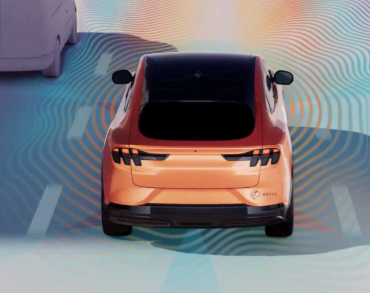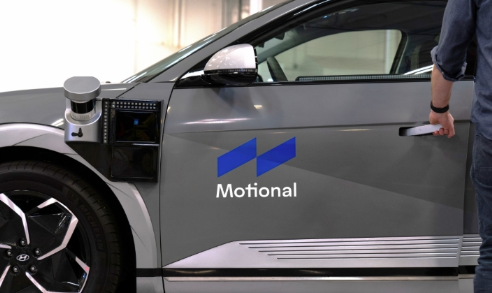
In the rapidly evolving landscape of autonomous vehicle technology, Pony.ai has emerged as China's leading innovator in Level 4 self-driving systems, successfully deploying commercial Robotaxi services across major Chinese cities including Beijing and Guangzhou while pushing the boundaries of what's possible in fully autonomous transportation. Founded by former Baidu executives with deep expertise in artificial intelligence and autonomous systems, Pony.ai represents the convergence of cutting-edge AI technology, practical engineering excellence, and strategic market positioning that has positioned the company at the forefront of the global autonomous driving revolution. This comprehensive analysis explores how Pony.ai has achieved breakthrough success in one of technology's most challenging domains, examining their technical innovations, commercial deployments, and strategic vision that continues to reshape the future of transportation. Understanding Pony.ai's approach to autonomous driving reveals crucial insights into the future of mobility, the role of AI in transportation, and the competitive dynamics shaping the next generation of automotive technology.
The Genesis of Pony.ai: Founding Vision and Strategic Direction
The founding of Pony.ai in 2016 by James Peng and Tiancheng Lou represented a pivotal moment in China's autonomous driving development, with both founders bringing extensive experience from Baidu's Apollo project and Google's self-driving car initiative to create a company specifically focused on achieving practical, commercial-grade autonomous vehicle deployment. Their vision for Pony.ai centered on the belief that Level 4 autonomous driving technology could be developed and deployed more rapidly through focused engineering, strategic partnerships, and iterative real-world testing rather than pursuing the theoretical perfection that had delayed many competing projects. This pragmatic approach to autonomous vehicle development has enabled Pony.ai to achieve significant milestones in commercial deployment while maintaining the technical rigor necessary for safe and reliable autonomous operation in complex urban environments.
The strategic positioning of Pony.ai within China's rapidly developing autonomous vehicle ecosystem reflects the founders' understanding of both the technical challenges and market opportunities that define successful autonomous driving companies in the current competitive landscape. The company's focus on Level 4 autonomy, which enables fully autonomous operation within specific operational design domains, represents a strategic choice to prioritize practical deployment over theoretical capabilities, allowing Pony.ai to achieve commercial viability while competitors remain in extended development phases. This market-focused approach has attracted significant investment from leading venture capital firms and strategic partners who recognize the company's potential to capture substantial market share in the emerging autonomous transportation sector.
The technical philosophy underlying Pony.ai's development approach emphasizes robust engineering, comprehensive testing, and iterative improvement based on real-world performance data rather than simulation-only development that has characterized many autonomous driving projects. The company's commitment to practical deployment has resulted in one of the most extensive real-world testing programs in the autonomous driving industry, with millions of miles of autonomous driving experience across diverse traffic conditions, weather scenarios, and urban environments. This extensive real-world validation has provided Pony.ai with crucial insights into the practical challenges of autonomous vehicle operation while building the safety record and regulatory confidence necessary for commercial deployment approval.
Technical Architecture and L4 Autonomous Driving Capabilities of Pony.ai
The technical architecture powering Pony.ai's Level 4 autonomous driving system represents a sophisticated integration of advanced sensor technologies, machine learning algorithms, and real-time processing capabilities that enable reliable autonomous operation in complex urban environments without human intervention. The company's sensor fusion approach combines high-resolution LiDAR systems, advanced camera arrays, radar sensors, and GPS/IMU units to create comprehensive environmental perception that maintains accuracy and reliability across varying weather conditions, lighting scenarios, and traffic densities. This multi-modal sensing approach ensures redundancy and robustness that are essential for safe autonomous operation while providing the detailed environmental understanding necessary for complex navigation decisions in dynamic urban settings.
The artificial intelligence and machine learning systems developed by Pony.ai include advanced neural networks for object detection and classification, predictive modeling for traffic behavior analysis, and decision-making algorithms that can handle the complex, often unpredictable scenarios encountered in real-world driving conditions. The company's AI systems are trained on extensive datasets collected from millions of miles of real-world driving experience, enabling the development of robust models that can generalize effectively to new situations and environments. Advanced simulation capabilities complement real-world testing by enabling rapid iteration and validation of algorithmic improvements while ensuring that safety-critical scenarios can be thoroughly tested before deployment in live traffic conditions.
The real-time processing and decision-making capabilities integrated into Pony.ai's autonomous driving system enable split-second responses to dynamic traffic conditions while maintaining smooth, human-like driving behavior that promotes passenger comfort and traffic flow efficiency. The system's ability to process multiple data streams simultaneously, predict the behavior of other traffic participants, and execute complex maneuvers safely has been validated through extensive testing and commercial deployment experience. Advanced path planning and motion control algorithms ensure that autonomous vehicles operate predictably and safely while adapting to local traffic patterns, road conditions, and regulatory requirements that vary across different deployment locations.
Commercial Robotaxi Deployment Success in Pony.ai
The commercial Robotaxi services launched by Pony.ai in Beijing, Guangzhou, and other major Chinese cities represent groundbreaking achievements in autonomous vehicle commercialization, demonstrating the practical viability of Level 4 self-driving technology for passenger transportation services. These deployments have provided real-world validation of the company's technical capabilities while generating valuable operational data and user feedback that continues to inform system improvements and expansion planning. The success of Pony.ai's Robotaxi operations has established the company as a leader in autonomous vehicle commercialization while proving that fully autonomous passenger services can operate safely and efficiently in complex urban environments with appropriate regulatory oversight and operational protocols.
The operational framework developed for Pony.ai's Robotaxi services includes comprehensive safety protocols, remote monitoring capabilities, and customer service systems that ensure reliable and safe transportation experiences for passengers while maintaining the operational efficiency necessary for commercial viability. The company's approach to fleet management, vehicle maintenance, and service optimization has created scalable operational models that can be replicated across multiple cities and markets as regulatory approval and infrastructure development enable expansion. Advanced telemetry and monitoring systems enable real-time oversight of autonomous vehicle operations while providing the data necessary for continuous improvement of both technical performance and operational efficiency.
The customer experience and market acceptance achieved by Pony.ai's Robotaxi services have demonstrated strong consumer confidence in autonomous vehicle technology when deployed with appropriate safety measures and operational transparency. User feedback and adoption rates have validated the company's approach to autonomous vehicle deployment while identifying opportunities for service enhancement and market expansion. The integration of mobile applications, payment systems, and customer support services has created seamless user experiences that compare favorably with traditional ride-hailing services while offering the unique benefits of autonomous operation, including consistent service quality, predictable pricing, and reduced environmental impact through optimized routing and vehicle utilization.
Strategic Partnerships and Industry Collaborations of Pony.ai
The strategic partnership approach adopted by Pony.ai has been instrumental in accelerating technology development, expanding market access, and building the ecosystem relationships necessary for successful autonomous vehicle deployment at scale. Key partnerships with automotive manufacturers, technology companies, and government agencies have provided Pony.ai with access to manufacturing capabilities, regulatory support, and market channels that would be difficult to develop independently. These collaborative relationships have enabled the company to focus on core autonomous driving technology development while leveraging partner expertise in vehicle manufacturing, fleet operations, and market development to create comprehensive solutions for autonomous transportation services.
The collaboration between Pony.ai and leading automotive manufacturers has resulted in the development of purpose-built autonomous vehicles that are optimized for Robotaxi operations while meeting safety and regulatory requirements for commercial passenger service. These partnerships have accelerated the transition from prototype vehicles to production-ready autonomous fleets while ensuring that vehicle design, manufacturing quality, and service capabilities meet the demanding requirements of commercial transportation operations. The integration of Pony.ai's autonomous driving technology with partner vehicle platforms has created scalable deployment models that can support rapid expansion as market demand and regulatory approval enable broader commercial operations.
Government and regulatory partnerships have been crucial for Pony.ai's success in obtaining the permits and approvals necessary for commercial autonomous vehicle operations, with the company working closely with transportation authorities, safety regulators, and urban planning agencies to ensure compliance with evolving autonomous vehicle regulations. These relationships have provided Pony.ai with insights into regulatory requirements and policy development while enabling the company to contribute to the creation of appropriate regulatory frameworks for autonomous vehicle deployment. The collaborative approach to regulatory engagement has positioned Pony.ai as a trusted partner in the development of autonomous vehicle policies while ensuring that commercial operations meet the highest safety and operational standards.
Safety Standards and Regulatory Compliance in Pony.ai
The comprehensive safety framework implemented by Pony.ai encompasses multiple layers of protection, redundant systems, and rigorous testing protocols that ensure autonomous vehicle operations meet or exceed safety standards for commercial passenger transportation. The company's approach to safety includes extensive validation of all system components, comprehensive failure mode analysis, and robust backup systems that can maintain safe operation even in the event of primary system failures. This multi-layered safety approach has been validated through millions of miles of testing and commercial operation while meeting the stringent requirements imposed by regulatory authorities for autonomous vehicle deployment in urban environments.
The testing and validation protocols developed by Pony.ai include both simulation-based testing and extensive real-world validation that covers a comprehensive range of traffic scenarios, weather conditions, and operational challenges that autonomous vehicles may encounter in commercial service. The company's testing methodology includes systematic evaluation of edge cases, stress testing of system components, and validation of safety-critical functions under various operating conditions. Advanced simulation capabilities enable testing of rare but safety-critical scenarios while real-world testing provides validation of system performance in actual operating conditions, creating a comprehensive validation framework that ensures reliable and safe autonomous operation.
The regulatory compliance framework established by Pony.ai includes comprehensive documentation, reporting systems, and operational protocols that meet the requirements of transportation authorities and safety regulators in all deployment markets. The company's approach to regulatory compliance includes proactive engagement with regulatory agencies, transparent reporting of safety performance, and continuous improvement of safety systems based on operational experience and regulatory feedback. This comprehensive approach to regulatory compliance has enabled Pony.ai to obtain the permits necessary for commercial operation while building trust with regulators and the public regarding the safety and reliability of autonomous vehicle technology.
Market Position and Competitive Advantages of Pony.ai
The competitive positioning of Pony.ai in the global autonomous driving market is defined by the company's unique combination of technical excellence, commercial deployment success, and strategic market focus that distinguishes it from both international competitors and domestic rivals in the rapidly evolving autonomous vehicle industry. While companies like Waymo, Cruise, and Tesla have pursued different approaches to autonomous driving development, Pony.ai has achieved a distinctive position through its focus on practical Level 4 deployment, extensive real-world testing, and successful commercialization in the world's largest automotive market. This strategic positioning has created sustainable competitive advantages that are difficult for competitors to replicate while establishing Pony.ai as a leader in autonomous vehicle commercialization.
The technical advantages developed by Pony.ai include proprietary algorithms, extensive real-world data collection, and proven system reliability that have been validated through millions of miles of autonomous driving experience and successful commercial operations. The company's approach to sensor fusion, AI model development, and system integration has resulted in autonomous driving capabilities that can handle complex urban environments reliably while maintaining the safety standards necessary for commercial passenger service. These technical capabilities, combined with extensive operational experience, have created intellectual property and competitive advantages that position Pony.ai favorably against competitors who may have superior resources but lack equivalent real-world deployment experience.
The market advantages achieved by Pony.ai through early commercialization and strategic partnerships have created network effects and market positioning that become increasingly valuable as the autonomous vehicle market matures and scales. The company's established relationships with regulatory authorities, automotive partners, and customers provide advantages in market expansion and service development that are difficult for new entrants to replicate. The operational experience and market knowledge gained through commercial deployment have informed product development and business strategy in ways that provide sustainable competitive advantages as the autonomous vehicle market continues to evolve and expand globally.
See More Content about AI tools
Global Expansion Strategy and International Ambitions of Pony.ai
The international expansion strategy pursued by Pony.ai reflects the company's ambition to become a global leader in autonomous vehicle technology while leveraging the competitive advantages developed through successful deployment in the Chinese market. The company's approach to international expansion includes strategic market selection, regulatory engagement, and partnership development that enable entry into key global markets while adapting to local regulatory requirements, traffic patterns, and consumer preferences. This global expansion strategy positions Pony.ai to capture opportunities in the worldwide autonomous vehicle market while diversifying revenue sources and reducing dependence on any single geographic market.
The regulatory and technical challenges associated with international expansion require Pony.ai to adapt its technology and operational approaches to meet varying safety standards, traffic regulations, and infrastructure conditions across different markets. The company's experience with regulatory compliance and safety validation in China provides a foundation for international expansion while requiring significant adaptation to meet the specific requirements of different regulatory jurisdictions. The technical flexibility built into Pony.ai's autonomous driving system enables adaptation to different traffic patterns, road infrastructure, and driving behaviors while maintaining core safety and performance capabilities that have been proven in commercial deployment.
The partnership and market entry strategies developed for international expansion include collaboration with local automotive manufacturers, technology companies, and regulatory agencies that can provide market access, technical expertise, and regulatory support necessary for successful autonomous vehicle deployment in new markets. These partnerships enable Pony.ai to leverage local knowledge and relationships while contributing proven autonomous driving technology and operational expertise that can accelerate market development. The company's approach to international expansion balances aggressive growth ambitions with careful attention to regulatory compliance, safety standards, and market-specific requirements that ensure successful long-term market entry and sustainable competitive positioning.
Future Innovation and Technology Roadmap for Pony.ai
The future technology roadmap for Pony.ai includes ambitious plans for advancing autonomous driving capabilities, expanding service offerings, and developing new applications for autonomous vehicle technology that extend beyond traditional passenger transportation services. Upcoming developments focus on enhanced AI capabilities that will improve system performance in challenging conditions, expanded operational design domains that will enable autonomous operation in more diverse environments, and new service models that leverage autonomous vehicle technology for logistics, delivery, and specialized transportation applications. These technological advances will position Pony.ai to capture opportunities across multiple market segments while maintaining leadership in core autonomous driving capabilities.
The artificial intelligence and machine learning advances planned by Pony.ai include development of more sophisticated prediction models, improved decision-making algorithms, and enhanced learning capabilities that will enable autonomous vehicles to handle increasingly complex scenarios while reducing the need for human intervention or oversight. These AI improvements will be informed by continued real-world deployment experience and will focus on addressing the remaining technical challenges that limit autonomous vehicle operation in certain conditions or environments. The company's commitment to continuous innovation ensures that Pony.ai's technology will continue to evolve and improve while maintaining the safety and reliability standards necessary for commercial operation.
The long-term vision for Pony.ai includes becoming a comprehensive autonomous mobility platform that provides technology, services, and solutions for various transportation and logistics applications while contributing to broader goals of sustainable transportation, urban mobility optimization, and reduced traffic congestion. This vision encompasses not only technological leadership but also positive social and environmental impact through the deployment of efficient, safe, and accessible autonomous transportation services. The company's roadmap includes development of autonomous vehicle technology for various applications, expansion into new markets and service areas, and contribution to the creation of comprehensive autonomous transportation ecosystems that can transform urban mobility and logistics operations.
Frequently Asked Questions About Pony.ai
Q: What makes Pony.ai's Level 4 autonomous driving technology different from other self-driving systems?
A: Pony.ai's Level 4 technology is distinguished by its focus on practical commercial deployment rather than theoretical capabilities, with systems designed specifically for real-world operation in complex urban environments. Unlike Level 2 or Level 3 systems that require human oversight, Pony.ai's Level 4 technology enables fully autonomous operation within defined operational design domains, allowing passengers to travel without any human driver intervention. The company's approach emphasizes robust sensor fusion, extensive real-world testing, and proven safety systems that have been validated through millions of miles of autonomous driving and successful commercial Robotaxi operations.
Q: How safe are Pony.ai's autonomous vehicles compared to human drivers?
A: Pony.ai's autonomous vehicles have demonstrated safety performance that meets or exceeds human driver safety standards through extensive testing and commercial operation data. The company's multi-layered safety approach includes redundant systems, comprehensive sensor coverage, and advanced AI algorithms that can react faster and more consistently than human drivers while avoiding common human error factors such as fatigue, distraction, or impaired judgment. Safety validation includes millions of miles of real-world testing, comprehensive simulation testing, and continuous monitoring of commercial operations to ensure that safety performance meets the stringent standards required for passenger transportation services.
Q: Where can passengers currently access Pony.ai's Robotaxi services?
A: Pony.ai's Robotaxi services are currently available in select areas of Beijing, Guangzhou, and other approved Chinese cities, with service areas expanding as the company receives additional regulatory approvals and deploys more vehicles. Passengers can access these services through mobile applications that enable ride booking, payment processing, and service management similar to traditional ride-hailing services. The company continues to expand service areas and is working on international deployment plans that will bring Robotaxi services to additional markets as regulatory approval and operational capabilities enable expansion beyond the current Chinese market focus.
Q: What are the main technical challenges that Pony.ai has overcome in developing Level 4 autonomous driving?
A: Pony.ai has addressed several critical technical challenges including reliable perception in adverse weather conditions, prediction of human driver and pedestrian behavior, safe navigation in complex traffic scenarios, and real-time decision-making in dynamic environments. The company's solutions include advanced sensor fusion that maintains accuracy across various conditions, machine learning models trained on extensive real-world data, robust path planning algorithms that can handle unpredictable scenarios, and comprehensive safety systems that ensure reliable operation. These technical achievements have been validated through extensive testing and commercial deployment, demonstrating the practical viability of Level 4 autonomous driving technology.
Q: How does Pony.ai plan to expand internationally and what challenges does this present?
A: Pony.ai's international expansion strategy focuses on strategic market selection, regulatory engagement, and partnership development that enable entry into key global markets while adapting to local requirements and conditions. The main challenges include meeting different regulatory standards across various countries, adapting technology to different traffic patterns and road infrastructure, and building partnerships with local automotive and technology companies. The company's approach includes careful market analysis, proactive regulatory engagement, and flexible technology architecture that can be adapted to different operational environments while maintaining core safety and performance capabilities proven in Chinese market deployment.
Q: What impact will Pony.ai's technology have on the future of transportation and urban mobility?
A: Pony.ai's autonomous driving technology has the potential to significantly transform urban transportation through improved safety, increased accessibility, reduced traffic congestion, and more efficient use of transportation resources. The deployment of autonomous Robotaxi services can provide mobility options for people who cannot drive traditional vehicles while optimizing traffic flow and reducing the need for private vehicle ownership. Long-term impacts may include fundamental changes in urban planning, parking requirements, and transportation infrastructure as autonomous vehicles enable new mobility models and more efficient use of existing transportation systems.
Conclusion: The Transformative Impact of Pony.ai on Autonomous Transportation
Pony.ai represents a remarkable success story in the challenging field of autonomous vehicle development, demonstrating how focused engineering, strategic market positioning, and practical deployment approaches can achieve breakthrough results in one of technology's most demanding applications. The company's achievement in successfully deploying commercial Level 4 autonomous driving services while maintaining safety standards and regulatory compliance has established new benchmarks for the autonomous vehicle industry while proving that fully autonomous transportation is not just a future possibility but a current reality. The success of Pony.ai provides valuable insights into the technical, regulatory, and commercial requirements for successful autonomous vehicle deployment while contributing to broader understanding of how AI technology can be applied to solve complex real-world challenges.
The impact of Pony.ai's achievements extends beyond the company's commercial success to include broader implications for transportation technology, urban mobility, and the role of artificial intelligence in addressing societal challenges such as traffic safety, accessibility, and environmental sustainability. The company's approach to autonomous vehicle development has influenced industry practices, regulatory frameworks, and public perception of autonomous driving technology while demonstrating the potential for AI-powered systems to enhance human capabilities and improve quality of life. This influence will likely continue to grow as Pony.ai expands its operations and contributes to the broader adoption of autonomous vehicle technology across global markets.
As Pony.ai continues to advance its technology, expand its market presence, and develop new applications for autonomous driving capabilities, the company's influence on the future of transportation will likely increase while contributing to the realization of safer, more efficient, and more accessible mobility solutions for communities worldwide. The success story of Pony.ai provides a compelling example of how innovative technology companies can achieve breakthrough results through focused execution, strategic partnerships, and commitment to practical solutions that address real-world needs while pushing the boundaries of what's possible with artificial intelligence and autonomous systems.





